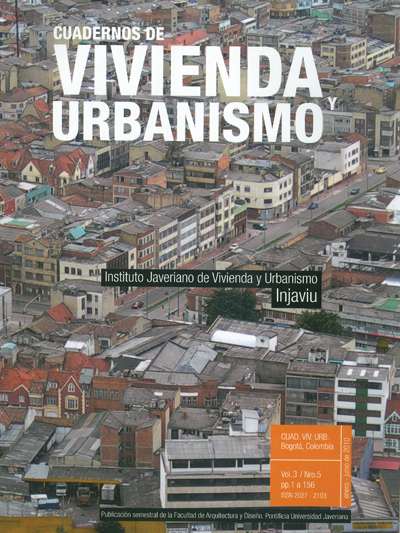Abstract
This article summarizes the finding and conclusions of an investigation about the Economic geography of tertiary sector for the economic basis enforcement of the Region of Nariño, Colombia, in the Globalization. Our work has two main aims: The first is to undertake this work to provide a better understanding of how urban functions —urban tertiary sector— act to mould the territory from cities in the globalization. The second is to provide a better illustration of the relation between urban population size and urban functions for formulation of the policies and strategies in the regional planning.
For these proposals we develop the follow analysis: Census data of urban populations and number of urban functions of nine mayor cities and all towns Nariño region, covering a 20-year period from 1989 to 2009, are processed on the Matrix of Scarcity to obtain the actual geography of tertiary sector. The Matrix of Scarcity is constructed with three hundred columns for the urban functions —services— and sixty two rows for the municipal centers of Nariño Department. Thus, has been identified a lineal correlation and regression between population size (X) and urban functional size (Y) of Nariño cities and towns to estimate the urban "tertiary" functions for regional development in the globalization.
This journal is registered under a Creative Commons Attribution 4.0 International Public License. Thus, this work may be reproduced, distributed, and publicly shared in digital format, as long as the names of the authors and Pontificia Universidad Javeriana are acknowledged. Others are allowed to quote, adapt, transform, auto-archive, republish, and create based on this material, for any purpose (even commercial ones), provided the authorship is duly acknowledged, a link to the original work is provided, and it is specified if changes have been made. Pontificia Universidad Javeriana does not hold the rights of published works and the authors are solely responsible for the contents of their works; they keep the moral, intellectual, privacy, and publicity rights.
Approving the intervention of the work (review, copy-editing, translation, layout) and the following outreach, are granted through an use license and not through an assignment of rights. This means the journal and Pontificia Universidad Javeriana cannot be held responsible for any ethical malpractice by the authors. As a consequence of the protection granted by the use license, the journal is not required to publish recantations or modify information already published, unless the errata stems from the editorial management process. Publishing contents in this journal does not generate royalties for contributors.


